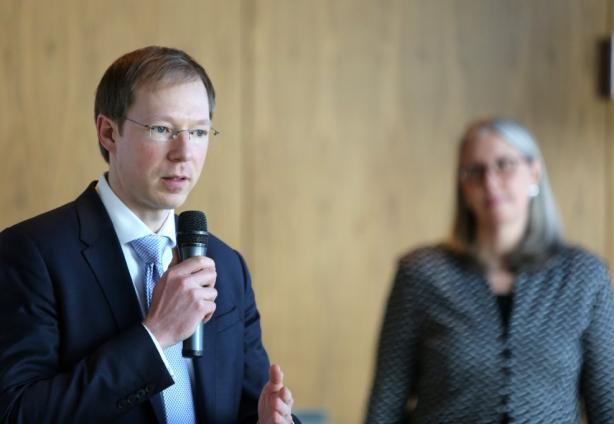Now established as a global player for alternative investment funds, Luxembourg is focused on the detailed work of making the new rules work. Definitions are difficult, but the Association of the Luxembourg Fund Industry estimates that there were €580bn assets in alternative funds based in Luxembourg towards the end of last year. This represents 16% of all funds located here and 7% of the global alternative funds market.
These figures were reflected in a positive atmosphere at the European Alternative Investment Funds Conference organised by ALFI on 19 and 20 January. For example, on one panel, the key AIFM directive was described as a “blessing” by Henrik de Koning of UBS Zurich and as “great” by Ksenia Belova of BlackRock London. The good news for this country is that using these rules are relatively easy to navigate if fund managers are already familiar with the venerable UCITS structures in which Luxembourg specialises.
Yet still the industry is feeling its way somewhat, two to three years after the directive was written into national law across most of the EU. Belova pointed to certain annoyances such as fees and the lack of coordination between national regulators. Michael Collins, of the trade group Invest Europe, suggested that private equity funds are only now starting to find out how well the AIFMD passport works as they seek to raise funds across European borders. Nevertheless, “pleasantly surprised” was how Anna Berdinner of the Alternative Investment Management Association described hedge fund managers’ experience of working with regulators on this.
Real estate funds
Luxembourg real estate investment funds are part of the success story. They did pretty well last year, with net assets up 20% in the twelve months to September 2015, almost double to growth rate for Luxembourg’s alternative sector as a whole. “Since the introduction of the AIFMD, the trend of setting up international fund vehicles in the Grand Duchy has even increased, with non-EU managers using Luxembourg as a European distribution hub,” noted Kai Braun of the consultancy EY Luxembourg, who produced ALFI’s annual survey on the subject. Real estate funds in Luxembourg had total assets of €39bn, this is about 7% of all alternative funds based here.
Rethinking business models was also a theme of the conference. Fintech is the buzzword but as James Lowry of State Street pointed out, there are many thousands of startups, and as in the dotcom era “the majority will fail”. Despite this, the search for innovation is vital.
This can be taken to extremes. In the opening keynote speech, venture capitalist and author Leonard Brody suggested that corporations should “create parallel organisations whose job is to put the other out of business.” This is because he thinks senior management often cannot be trusted with revolutionary new ideas if these potential big earners risk cannibalising existing core business.
